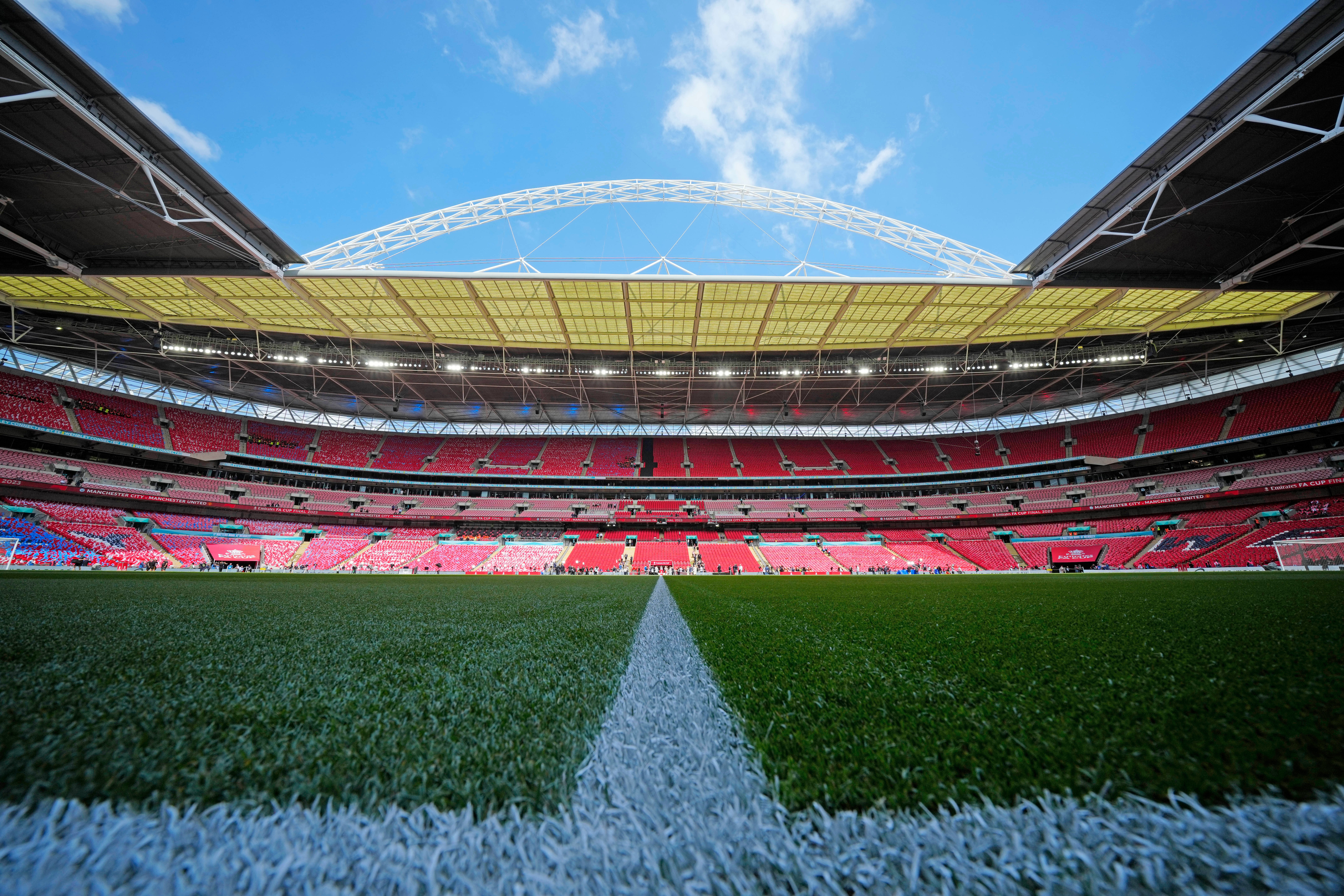Euro 2028 venues: UK and Ireland name 10 stadiums as Anfield and Old Trafford miss out
Six English stadia are on the final list while there is one in each of the Republic of Ireland, Northern Ireland, Scotland and Wales
The UK and Ireland have been announced as hosts for Euro 2028 after their sole bidding rival, Turkey, pulled out of the running.
The bid originally featured 14 proposed venues with nine in England, two in Ireland and one in each of Northern Ireland, Scotland and Wales. That shortlist was then whittled down to a final 10, with Dublin’s Croke Park, Manchester’s Old Trafford, Sunderland’s Stadium of Light and the London Stadium all failing to make the cut.
A joint statement by the five associations said: “Together, we believe we can deliver a world-class tournament, and that hosting Euro 2028 will achieve a strong and sustainable legacy for football and wider society, helping to drive economic growth in local communities.”
Uefa’s executive committee officially announced the hosts on Tuesday 10 October. Here is a closer look at the final 10 venues.
ENGLAND
Etihad Stadium
Work is set to begin later this year on increasing the capacity of treble-winning Manchester City’s ground to almost 62,000 by 2025.
Everton Stadium
The Toffees’ new home at Bramley-Moore Dock is scheduled for completion late next year. Developers are working to a capacity of 52,888.
St James’ Park
St James’ Park also hosted matches at Euro 96. Newcastle are considering options to develop the stadium which might mean the capacity has increased by the time the championships begin in 2028.
Villa Park
Aston Villa are undergoing a £100m redevelopment of their North Stand, taking the capacity from 42,657 to more than 50,000.
Tottenham Hotspur Stadium
Spurs’ home is the largest club stadium in London, with a capacity of over 62,000. Opened in April 2019, the stadium includes a retractable pitch with a synthetic NFL surface underneath.
Wembley Stadium
England’s national stadium is widely expected to host the final, having also been the venue for the Euro 96 finale and the decisive England v Italy clash at Euro 2020. The Football Association will be working hard with the authorities to ensure there is no repeat of the chaotic scenes which surrounded that match. Wembley is celebrating its centenary this year, with the original stadium opening in 1923 for the British Empire Exhibition.

NORTHERN IRELAND
Casement Park
Construction on the site in the Andersonstown area of Belfast is due to get under way next year with completion by 2026. The capacity of the stadium is set to be 34,500.
REPUBLIC OF IRELAND
Aviva Stadium
The Dublin venue, which holds over 51,000 people, regularly hosts Republic of Ireland football matches and those of the Ireland rugby union team, as well as high-profile Gaelic sports. The stadium had been part of the original multi-country plans to host Euro 2020 but could not ultimately provide Uefa with the necessary assurances over minimum spectator levels amid the Covid-19 pandemic.
SCOTLAND
Hampden Park
Scotland’s national stadium did host matches at Euro 2020. The Scottish Football Association has also bid to stage the Champions League final in 2026 or 2027 at the stadium, which currently holds just over 50,000. However, developers have put forward proposals to upgrade the stadium and increase capacity to 65,000.
WALES
Principality Stadium
The Cardiff venue has hosted major European football events before, having staged the 2017 Champions League final. Set to be the second-largest venue in the tournament with a capacity of 74,500.
Additional reporting by PA

Join our commenting forum
Join thought-provoking conversations, follow other Independent readers and see their replies
Comments